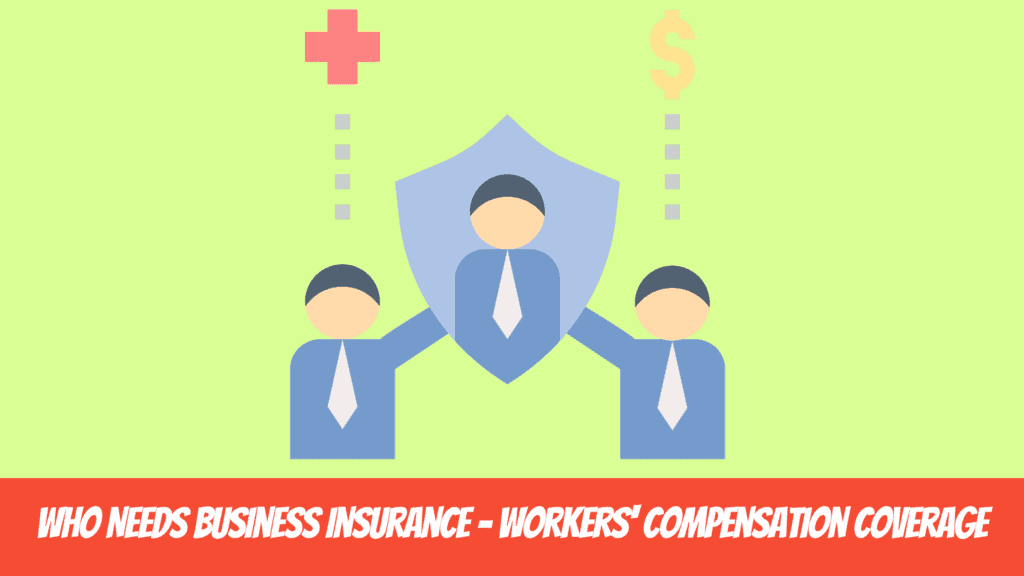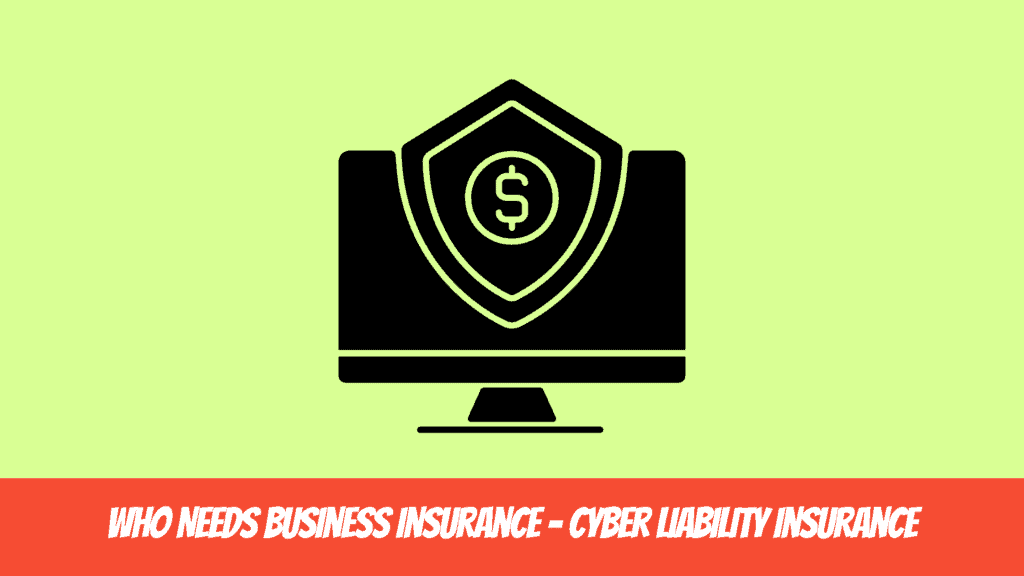Who Needs Business Insurance – An Introduction
Business insurance is an essential part of running a successful business. It helps to protect you from financial loss should something unexpected or catastrophic happen, and it can help you stay afloat when the worst happens.
Business insurance helps to provide peace of mind and security for business owners in the event of an accident, legal issue, natural disaster, or another unexpected event.
Businesses of all sizes, from small startups to large corporations, need some form of business insurance coverage.
While the exact coverages and limits may vary according to the size and type of business, most businesses should have some form of property damage, liability protection, workers’ compensation, professional indemnity coverage (for certain professions), and cyber liability.
Property Damage Coverage

Property damage coverage is a specific type of insurance policy offered to business owners that provides financial protection from losses due to physical damage or destruction of the property and equipment used in running the business.
This coverage can be tailored to fit any type of business, whether it’s a brick-and-mortar store, an online store, a service provider, or any other type of organization. Property damage coverage typically covers items such as computers, office furniture, tools and machines, inventory, supplies, and other physical assets.
The goal of property damage coverage is to help offset losses incurred due to physical damage or destruction of the property.
For example, if a severe storm damages your store’s roof and causes extensive water damage throughout the building, having this coverage can help you pay for repairs or replacements without taking out loans or depleting your liquid funds.
If vandalism occurs at your business location and results in expensive repair costs or replacement costs for damaged items like computers and furniture, property damage coverage may be able to help you manage these costs as well.
In order to get the most out of your property damage coverage policy and maximize its protective benefits for your business operations, it’s important that you properly assess all potential risks associated with your business activities prior to purchasing a policy.
Make sure you’re aware of any excluded exclusions like wear & tear on equipment or intentional acts that may not be covered by certain policies before making any decisions about which policy best suits your needs.
Be sure to regularly review your policy with your insurance agent in order to ensure that it still adequately meets the changing needs of your business over time.
Liability Protection

Liability protection is a legal safeguard that helps to protect businesses from claims brought against them for negligence or injury caused by their products or services.
It is an important aspect of risk management and can help protect companies from financial losses due to lawsuits. Liability protection can cover a wide range of activities, such as product liability, professional liability, contract liability, and more.
Product liability covers any injury or damage caused by a business’s goods or services. Companies must take steps to ensure their goods are safe for consumers and meet the necessary safety requirements set out in the law.
If a product is found to be unsafe, companies may be held liable for any injuries resulting from its use. Professional liability protects companies from legal claims related to professional advice given. This could include medical malpractice, architectural or engineering errors, or even simple mistakes made by employees.
Companies must ensure that all advice given adheres to industry standards and best practices in order to provide clients with proper care.
Contract liability occurs when one party fails to fulfill their obligations as outlined in the contract between two parties. This could be due to failure to pay, delayed service delivery, or breach of confidentiality clauses within the agreement.
Companies must take care when signing contracts with partners and customers and adhere strictly to all terms of the agreement in order to avoid potential liabilities associated with contract breaches.
Liability protection is an essential aspect of running a successful business because it helps protect companies from financial losses incurred due to negligence or injury claims brought against them.
Companies should take measures such as product testing, implementing safety protocols, and properly scrutinizing contracts before entering into agreements in order to reduce risks associated with these types of liabilities.
Professional Indemnity Insurance

Professional indemnity insurance is a form of liability insurance that provides financial protection to professionals and businesses that may be held legally responsible for any mistakes or errors made when providing professional services.
It can cover costs associated with legal fees, compensatory damages, settlements, and judgments.
Professional indemnity insurance helps to protect the livelihoods of professionals in many occupations, including but not limited to lawyers, architects, engineers, accountants, consultants, IT contractors, surveyors, and brokers.
Professional indemnity insurance is essential for those providing professional services that could potentially lead to claims from clients. It covers losses resulting from negligence or other wrongful acts committed by the insured professional in their capacity as a professional service provider.
Even if the claimant has no grounds for a successful claim against the business or individual providing care and/or advice, legal costs can still mount up quickly when defending such allegations. In this case, professional indemnity insurance will step in and payout on behalf of the policyholder.
The exact coverage provided by professional indemnity insurance policies depends on the terms of the policy taken out by an individual or organization.
In general, Professional Liability Insurance (PLI) can provide compensation to clients who suffer a loss due to negligence of the insured party.
PLI also covers legal defense costs in cases related to libel or slander; lost documents; breach of contract; intellectual property infringement; employee dishonesty and fraudulent acts, defective products supplied by covered parties as well as breaches of confidentiality agreements.
Workers’ Compensation Coverage

Workers’ compensation coverage is a type of insurance that provides financial protection to employers if an employee becomes injured or ill due to a workplace incident.
This type of coverage is mandated in most states and helps employers protect themselves from the high costs associated with employee injuries or illnesses that occur on the job.
It covers medical expenses as well as other related expenses, such as lost wages, vocational rehabilitation, and even death benefits for surviving family members. It also helps protect any third parties involved with the incident, such as customers or vendors.
Workers’ compensation coverage has its limits and can vary greatly by state. Each state has its own set of laws governing workers’ compensation, including which injuries are covered, how much money is paid out for claims, and other details like time limitations for filing claims and who pays for attorney fees if there is a dispute over the injury claim.
Employers must make sure they have comprehensive workers’ compensation coverage that meets their state’s requirements in order to be adequately protected financially against potential employee injuries or illnesses.
It’s important to note that even though employers pay for workers’ compensation insurance premiums, employees cannot sue their employer for an injury sustained at work regardless of fault.
This protects employers from costly lawsuits in addition to providing financial help for employees when injuries occur on the job.
Some states allow employers to take part in alternative dispute resolution programs instead of going through legal proceedings when there are issues with a workers’ compensation claim.
Cyber Liability Insurance

Cyber liability insurance is an incredibly useful tool for businesses to protect themselves and their customers against the potential risks of cyber-attacks.
This type of coverage helps mitigate the financial losses associated with data breaches, privacy violations, and other cybersecurity incidents.
It can help cover costs such as legal fees, data breach response costs, notification expenses, identity protection services for affected individuals, and compensation for victims.
In today’s digital landscape, cyber threats are becoming increasingly sophisticated, making it more important than ever for businesses to have comprehensive and effective cyber security measures in place.
Cyber liability insurance provides a layer of protection that can be used to minimize the financial damage caused by a breach or attack.
It also helps businesses stay compliant with various regulations related to data privacy and security.
Businesses need to ensure that they are properly covered when dealing with sensitive customer information or other confidential data.
Cyber liability insurance can provide peace of mind that if something goes wrong, they will be able to respond quickly and recover financially without suffering significant losses.
This kind of coverage can help companies protect their reputation in the event of a breach or attack by reassuring customers that steps are being taken to safeguard their information.
It’s essential for business owners to choose an insurance provider that offers comprehensive cyber liability coverage tailored specifically to their needs.
They should make sure that their policy covers all relevant categories such as public relations expenses, IT forensic services, website content restoration costs, regulatory fines, penalties, and much more.
With the right coverage in place, business owners will be better prepared when faced with a cyber-related incident or attack.
Who Needs Business Insurance – The Verdict
Come to the end of this blog post “Who Needs Business Insurance“.
Business insurance is not only recommended but may be required by law or contract in certain circumstances. If you have any employees, workers’ compensation coverage is likely a legal requirement.
Many banks and lenders require businesses to carry appropriate levels of business insurance before they will extend business loans or lines of credit. Landlords may also require tenants to maintain certain types of insurance coverage.
No matter the size or type of business, it’s important to understand what coverages are available and make sure you have the right policies in place for your particular situation.
Business insurance can help provide protection from a wide range of risks and provide peace of mind that you’re covered should something go wrong.
Get started today to find out which policies and limits are best for you and your business.
Related Articles:
- Health Insurance for Small Businesses Should Know
- Benefits of Public Liability Insurance for Your Small Business
- What Is Small Business Insurance?
- The Importance of Insurance to Society
- The Top 10 Benefits of Investing in Small Business Insurance
- 8 Best Types of Business Insurance you need in 2023
- 5 Importance of Life Insurance – Well Explained!
